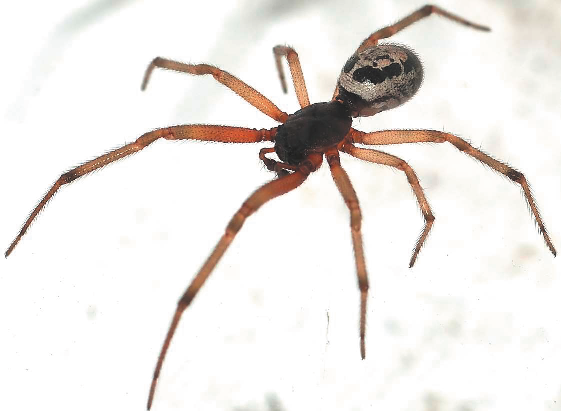WORCESTERSHIRE Wildlife Trust has called for calm following ‘panic publicity’ surrounding the venomous False Widow spider.
It comes amidst reports of people being bitten by the spider in other parts of the county and after Worcestershire Acute Hospitals NHS Trust would neither confirm or deny to The Observer if anyone had been treated for bites at the Worcestershire Royal and Alexandra Hospitals.
Wendy Carter, the WWT’s communications manager, said: “If readers do come across one we’d advise them to remove the spiders humanely, using a glass and a piece of card is easy enough, and put them outside.
“The spider is not aggressive so will not attack, the only reason for a bite would be in its defence.”
The Worcestershire Wildlife Trust has also become increasingly concerned people are now killing every spider they come across, regardless of species.
And, although the eight-legged creatures are probably too numerous to be wiped out, the ecosystem can be fragile and a natural equilibrium can easily be disrupted.
Worcestershire Wildlife Trust (WWT) and the Worcestershire Biological Records Centre have had several potential records sent to them and most of them have been identified as other species.
Another wildife expert – Emma Bartholomew, from the Butterfly Farm in Stratford-Upon-Avon, said, although many did not realise, every Briton had coexisted with the non-deadly arachnids for their entire lives.
She said the species, which are around 2cm in size and are also known as Steatoda nobilis, arrived in 1879 when they travelled in banana crates from the Canary Islands. They have been peacefully living in dark, quiet, corners, sheds and garages eating small insects ever since.
Experts have verified the spiders’ bites are no worse than a wasp or bee sting and no person in Britain has died from one, meaning more people have died from falling off stepladders.
She said a man’s injuries, which were circulated around the Internet after his leg was cut open following a False Widow bite, was more down to his bite becoming infected, not because of the spider’s venom.
She said a small percentage of people may have bad reactions but the chances of being bitten were small as only females bit and most would not unless they were disturbed and provoked.
Male spiders are normally spotted by people because they are walking around looking for a mate.
Often, False Widow bites occur because the spider has ended up in clothing and was disturbed as the ‘victim’ dressed.
“Sensational articles have brought this species to public attention and people are afraid of it,” she added.











